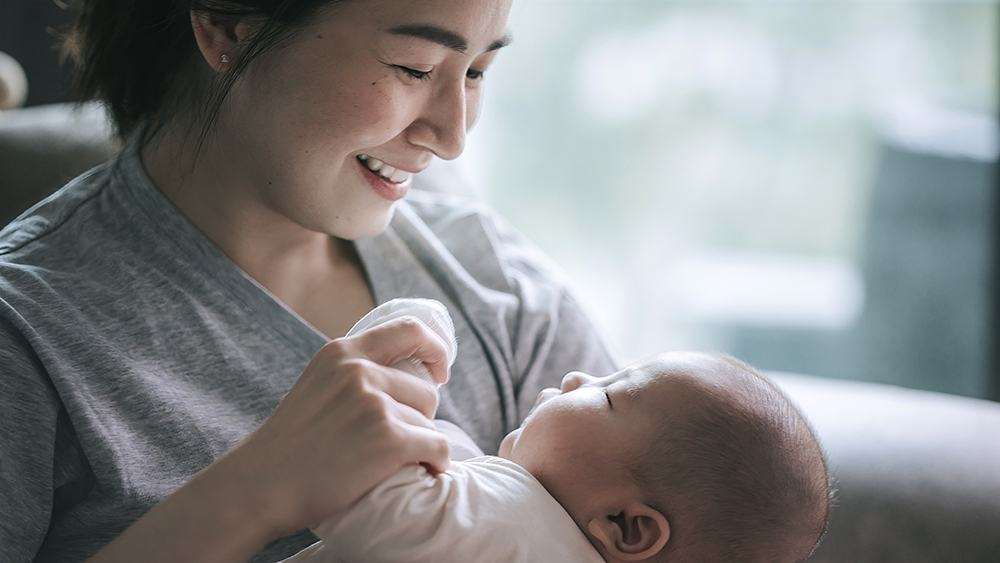
The babies of people who had COVID-19 while pregnant are more likely to miss developmental milestones.

The babies of people who had COVID-19 while pregnant are more likely to miss developmental milestones.
What you need to know
When a pregnant person gets sick, there are sometimes long-term impacts on their infant’s health after they are born. Although COVID-19 is known to increase the risk of pregnancy problems such as preterm birth, which can affect children in the long term, more research needs to be done on how COVID-19 can affect child development.
In preliminary findings from a small study supported by the National Institute of Mental Health and the Eunice Kennedy Shriver National Institute of Child Health and Human Development, researchers compared data and found that babies whose mothers had COVID-19 while pregnant were more likely to be diagnosed with neurodevelopmental disorders in their first year than babies of people who did not have COVID-19 during pregnancy.
What did the researchers do?
The researchers looked at the anonymous electronic health records of 7,466 patients who delivered babies between March and September 2020, before COVID-19 vaccines were available. According to those records, 222 of those people tested positive for COVID-19 while they were pregnant.
Next, the researchers looked at the first year of health records for the 7,772 babies of those pregnancies (some patients gave birth to multiple children). During their first year, babies are expected to hit many speech and motor skill milestones, such as playing games, putting objects in a container, or picking up small pieces of food between a thumb and finger. Not all babies hit these milestones at the same time. But if a baby has certain delays, a doctor may diagnose them with a neurodevelopmental disorder, which is recorded in the electronic health record.
The researchers found that 6% of the babies who were exposed to COVID-19 during pregnancy were diagnosed with neurodevelopmental disorders in their first year. The risk of these disorders was highest for the babies of pregnant people who tested positive for COVID-19 during their third trimester.
By comparison, only 3% of the babies who were not exposed to COVID-19 during pregnancy were diagnosed with neurodevelopmental disorders.
Why is this research important?
Although the sample size used in this study is small, the findings from this study underscore the need for pregnant people to take preventive measures against SARS-CoV-2. Several studies have shown that COVID-19 vaccines are safe and effective for pregnant people. By following health and safety guidelines, pregnant people can lower their risk of health problems for themselves and their babies.
Where can I go to learn more?
Coronavirus and the Nervous System
-
The National Institute of Neurological Disorders and Stroke shares current research on the effects of COVID-19 on the brain and nervous system.
Do Some Babies Have a Higher Risk of Severe COVID-19?
-
A small study found that pregnant people who recovered from COVID-19 had lower levels of protective antibodies if they were carrying male fetuses.
Important Milestones: Your Child by One Year
-
The Centers for Disease Control and Prevention shares milestones that most children reach by the time they are 1 year old.
Sources
Edlow, A. G., Castro, V. M., Shook, L. L., Kaimal, A. J., & Perlis, R. H. (2022). Neurodevelopmental outcomes at 1 year in infants of mothers who tested positive for SARS-CoV-2 during pregnancy. JAMA Network Open, 5(6), e2215787. https://doi.org/10.1001/jamanetworkopen.2022.15787

News and Stories
Read stories about the efforts underway to prevent, detect, and treat COVID-19 and its effects on our health.
 An official website of the United States government
An official website of the United States government

